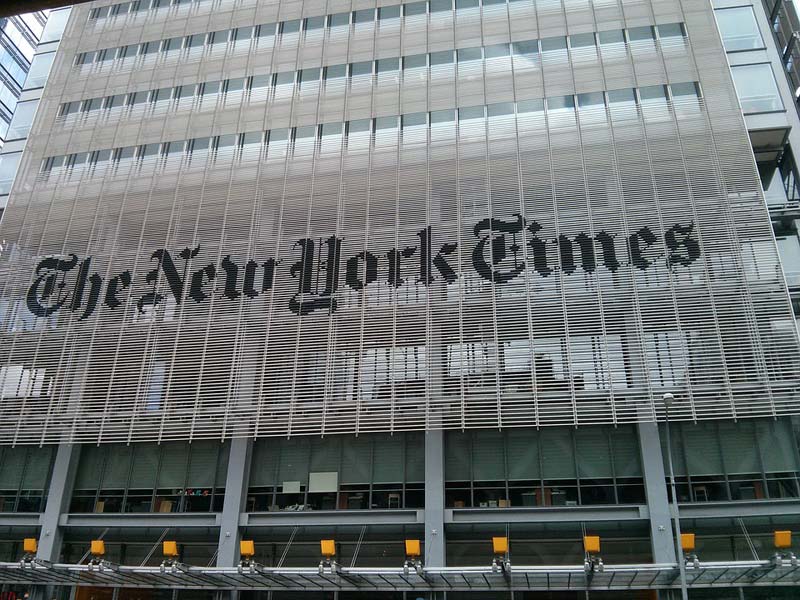
It is "a very unbalanced, one-sided account." It is "wrong in so many ways." It is "not only ahistorical," but "actually anti-historical." It is "a tendentious and partial reading of American history."
This is what top historians have said of the splashy Times Magazine feature on slavery in the United States that aspires to fundamentally re-orient our understanding of American history and change what students are taught in the schools.
Given that the Times can't necessarily be trusted to give a straight account in its news pages of Mitch McConnell's latest tactical maneuver, it wouldn't seem a natural source for objective truth on sensitive historical matters, and sure enough, the project is shot through with an ideological radicalism that leads to rank distortions and laughable over-reach.
The project has been controversial since it was first published last year, but its architects sneered at the critics as troglodyte conservatives (or "white historians") unwilling to grapple with the country's racial sins. Then, the World Socialist Web site — of all outlets — began publishing interviews with eminent historians slamming the project.
All of the above quotations come from the Web site's interviews with highly accomplished and respected historians — the Princeton professor James McPherson, author of the magisterial history of the Civil War, "Battle Cry of Freedom"; the formidable historian of the revolutionary period Gordon Wood; the CUNY professor James Oakes, who specializes in the Civil War period; and Lincoln Richard Carwardine of Oxford University.
At the end of the year, the Times published an extraordinary letter from McPherson, Oakes and Wood, as well as Sean Wilentz of Princeton and Victoria Bynum of Texas State University demanding "prominent corrections of all the errors and distortions presented in the 1619 project."
"These errors, which concern major events, cannot be described as interpretation or 'framing,' " the historians wrote. "They are matters of verifiable fact, which are the foundation of both honest scholarship and honest journalism. They suggest a displacement of historical understanding by ideology. Dismissal of objections on racial grounds — that they are the objections of only ‘white historians' — has affirmed that displacement."
The Times, in a response from the editor-in-chief of the magazine, Jake Silverstein, countered: "Historical understanding is not fixed; it is constantly being adjusted by new scholarship and new voices." In other words, just wait and the supporters of the 1619 project will enshrine it as a new orthodoxy.
One focus of the historians is the preposterous claim of the 1619 project that a primary reason that the colonists launched the American Revolution was to protect slavery. "This is not true," they say. "If supportable, the allegation would be astounding — yet every statement offered by the project to validate it is false."
Silverstein counters by invoking disquiet among American slave-holders over the landmark Somerset decision in England in 1772 that found that chattel slavery wasn't supported under the "natural law." Yet nothing in the historical record suggests that the decision, which didn't apply to the colonies, played a role in precipitating the revolution. Silverstein also notes the so-called Dunmore Proclamation by the royal governor of Virginia in late 1775 offering freedom to slaves who joined with British forces. By this point, though, the revolution was already underway (the First Continental Congress met in 1774; Lexington and Concord came earlier in 1775).
Nothing is going to budge the Times from its view that slavery is the central story of America, because establishing that is the entire point of the 1619 project. Nonetheless, the dissenting historians are performing an important public service. They are making the dishonesty of the project a matter of record and might, in so doing, cause educational institutions to think twice before adopting it wholesale into their curricula.
At least the Times' assault on the nation's historical memory is not going unanswered.
Sign up for the daily JWR update. It's free. Just click here.
(COMMENT, BELOW)


 Contact The Editor
Contact The Editor
 Articles By This Author
Articles By This Author